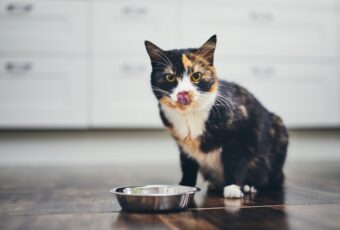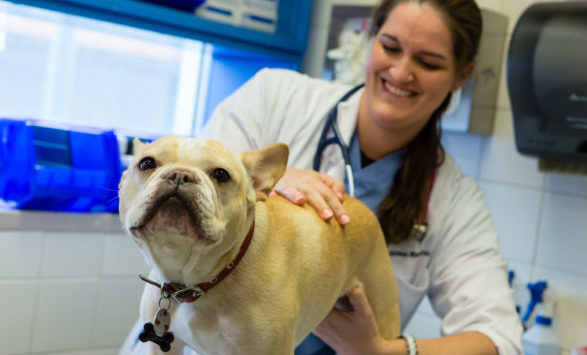Nutrition for Cats

Your cat needs a high-quality balanced diet to make sure she gets the vitamins and minerals her body needs. New pet food diets and trends come and go, so be sure to ask your veterinarian any questions before starting your cat on a new diet. If you’re wondering what to feed your new cat, ask your veterinarian for a recommendation.
Cat and dog foods aren’t the same and you shouldn’t feed your cat dog food or vice versa. Cats need specific vitamins and amino acids, such as:
- Vitamin A: In order to keep a cat’s vision and skin healthy, your cat needs a certain amount of Vitamin A. Dogs don’t have to worry about getting vitamin A from their food because their bodies turn beta carotene into this necessary vitamin.
- Taurine: While dogs can make their own supply of this important amino acid, cats need to get it from their diet. Feeding cats dog food can lead to a type of heart disease called hypertrophic cardiomyopathy. Though many people think cats like a fish-only diet, feeding only fish to your cat won’t give them the amount of taurine they require.
- Arachidonic acid: This fatty acid helps cats produce an inflammatory response to naturally protect against illness, control skin growth, and help other parts of the body function properly. While dogs can make their own, cats need to get arachidonic acid from their food.
- Protein: Cats need more protein than dogs and fewer carbohydrates. This is especially important for kittens and adult cats who are nursing.
Make an Appointment

Primary Care
AMC’s Primary Care Service aims to provide the highest quality primary veterinary care and to educate our clients about the latest in healthcare and preventative medicine, so they can make informed medical decisions for their pets, enabling their companions to live longer, happier, and healthier lives.
Learn More





























